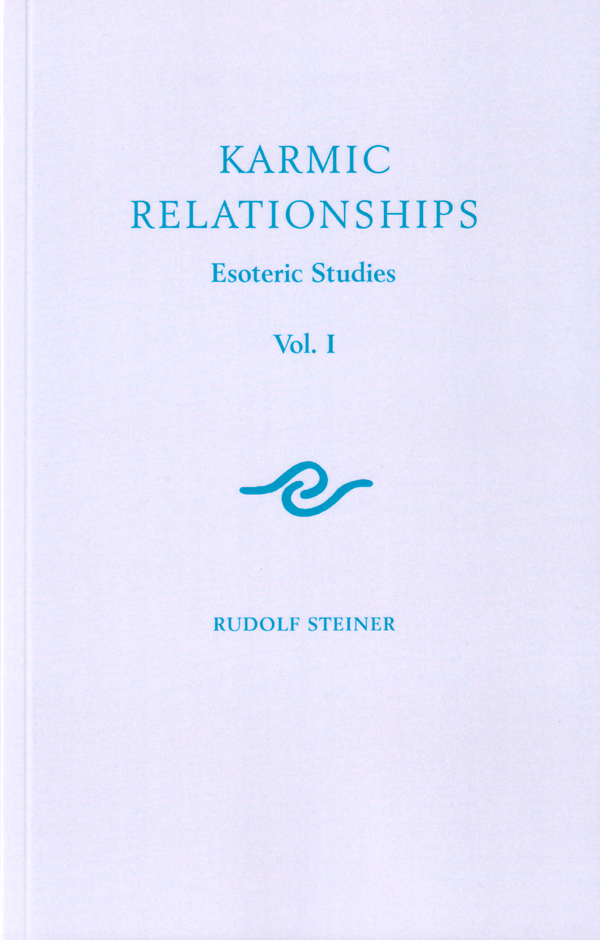Skylark Books
Karmic Relationships – Volume 1
12 lectures by Rudolf Steiner
12 lectures, Dornach, 16 Feb – 23 Mar 1924, GA235
Trans: G. Adams, rev. M. Cotterell, C. Davy, & D. S. Osmond
205pp; paperback
ISBN: 9781855842670
£14.95
In Karmic Relationships – Volume 1, Rudolf Steiner introduces some of the fundamental principles by which cause and effect occurs, first in the mineral, plant and animal kingdoms, and finally in the human kingdom itself, introducing the principle of causation in one lifetime being rooted in the deeds and events of a previous lifetime – i.e. karma or human destiny.
He proceeds from there to show that karma has a variety of sub-elements which variously affect our etheric body (our health and sense of well-being), our astral body (the nature of our sympathies and antipathies), and our egohood (events and experiences which meet us in life). He describes how each of these realms of cause and effect are orchestrated by ourselves in collaboration with the three major hierarchies of spiritual beings with whom we engage and relate during the long period between our death and subsequent rebirth.
He further describes how not only in our deeds, but in our attitudes, outlook and interests we generate consequences which work on into subsequent lifetimes. It is a very different matter whether we pursue our activities out of duty or out of love, whether we take an active interest in nature or beauty, or just pass it by with only the merest acknowledgement. Such attitudes have a capacity of generating effects long into the future and even of determining the health and sense of well-being we experience in a subsequent lifetime.
Once a general foundation is established understanding of the dynamics of karma, Steiner examines the karmic development of specific personalities whom he selected as representative of European culture in the 19th Century with its genius and its strong materialistic bent. These are aestheticist and philosopher, Friedrich Theodor Vischer, composer Franz Schubert and scientific historian and philosopher, Eugen Dühring. After describing each of them in terms of their current biographies and personal characteristics, he follows them backwards to earlier incarnations where we can see how these characteristics are metamorphosed traits of earlier lifetimes where they are expressed under quite different cultural circumstances.
A variety of other individuals are karmically traced and through this a historical phenomena is brought to light which is hidden from ordinary historical perspective: how the particular genius that is found in early post-Christian Arabian culture dies out in the culture itself, only to re-emerge through its re-incarnating leading personalities as the sources European materialism of the 19th Century.
Some of the personalities whom Steiner karmically traces in this first volume are Count Bacon of Verulam, Garibaldi, American president Woodrow Wilson, Ernst Haeckel, Lord Byron, Nietzsche, Charles Darwin; and there are others.
This is probably one of the best and truest introductions to the complex nature of karma that can be found in the public arena of occult knowledge today.
Trans. G. Adams, rvd. M. Cotterell, C. Davy and D. S. Osmond
12 lectures, Dornach 16 Feb – 23 Mar 1924, GA235
Rudolf Steiner Press
205pp; paperback
ISBN: 9781855842670
| Weight | 290 g |
|---|---|
| Dimensions | 21.5 × 13.8 × 1.5 cm |


